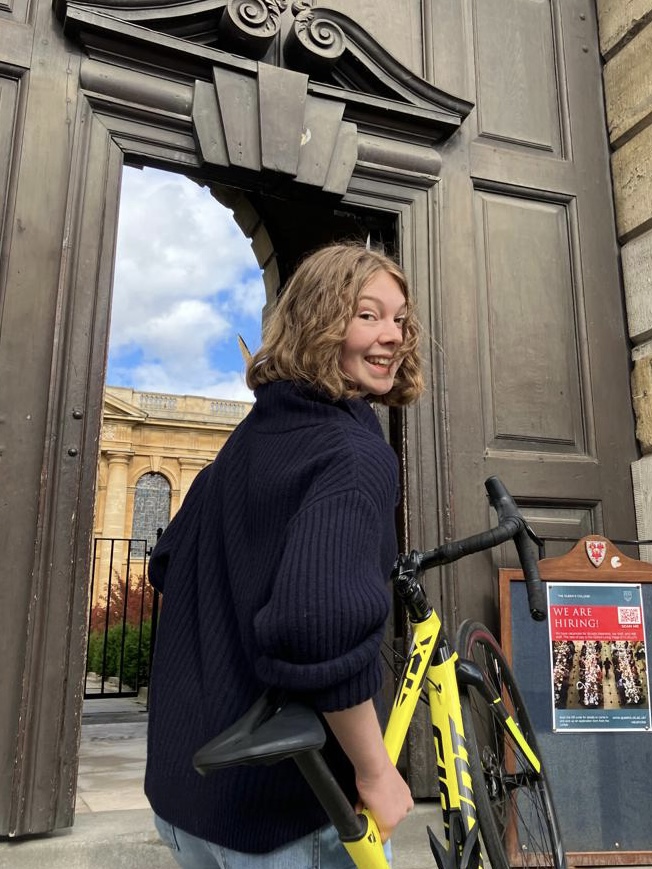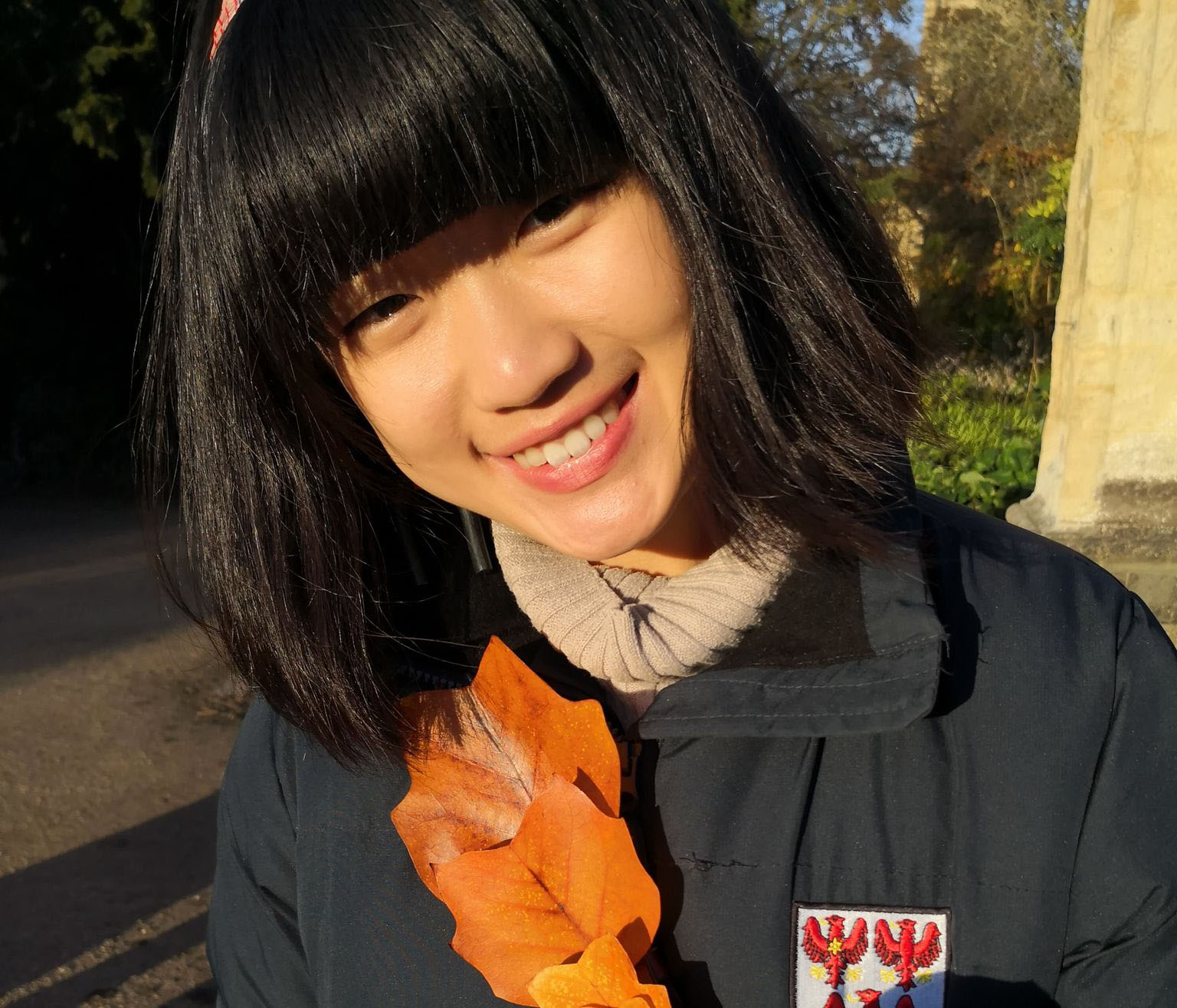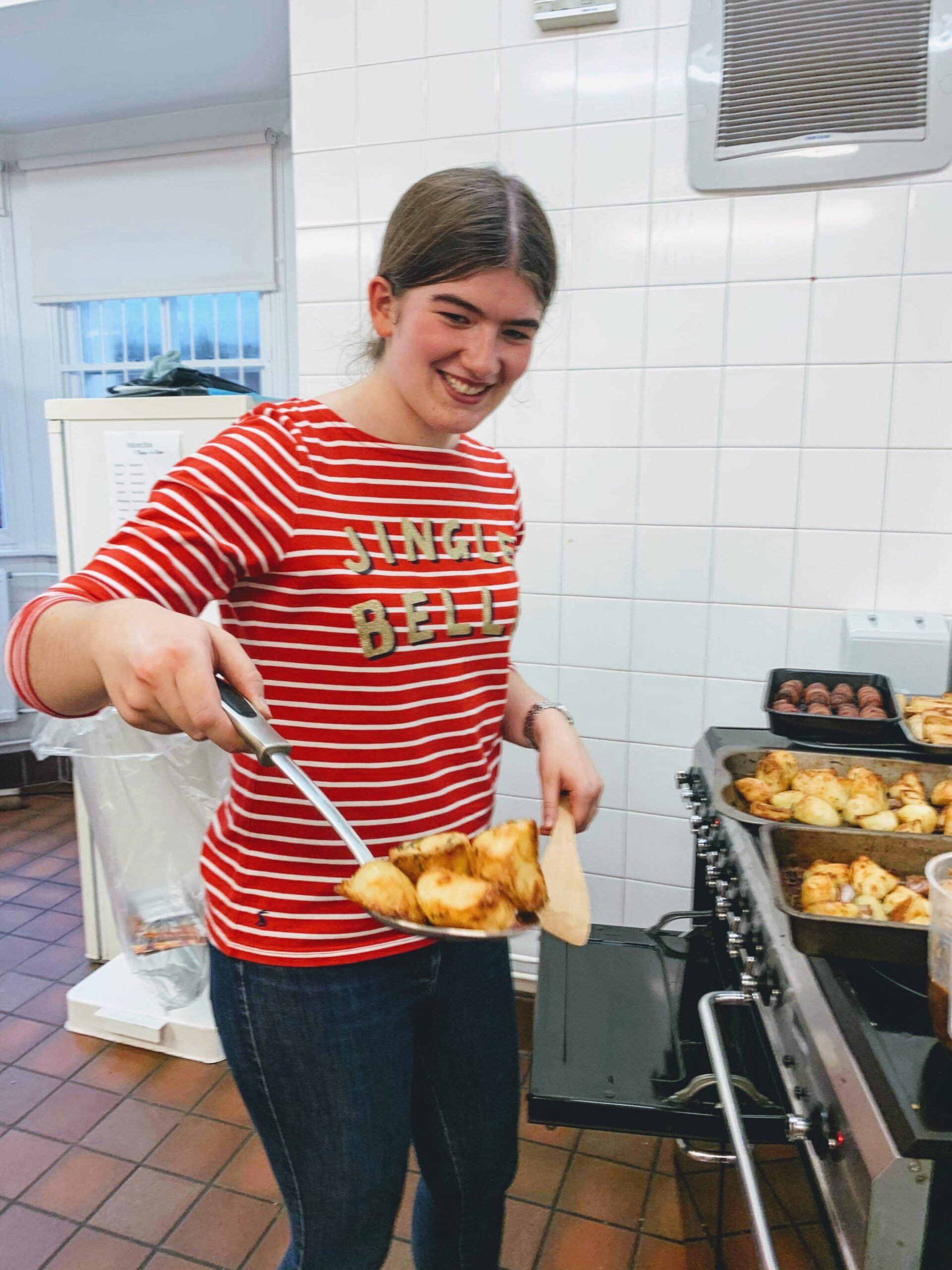A Day in the Life
Morning – I normally wake up around 8am, except if I’m going rowing. This is split between earlier mornings (6:30am!) and afternoon sessions. Early morning sessions are always worth it because we go to Hall for breakfast, e.g. hash browns and eggs.
Morning work – for humanities, there is normally a huge range of lectures on offer, but you select the ones that are most relevant to what you’ll be covering in classes and tutorials. I go to one-two lectures a day on average, but this can be flexible – it’s often about finding the lecturers who you know will be most interesting, and strategically picking what to go to!
If I’m not in a lecture, I normally use the morning as my main time to work. There are loads of beautiful libraries in Oxford, so it’s great to change around to add variety, but I like the modern part of the Queen’s library most, because of its big shared desks where you can sit with your friends even if working independently.
Lunch – this is always one of the best bits of the day, when everyone has a break from work together to eat lunch in Hall. At Queen’s it’s quite reasonably priced (around £3.00 for a full cooked meal), and is a great time to catch up with everyone.
Afternoon – tutorials and classes are normally in the afternoons. For my degree, my main task for the week is writing a 2,000 word essay, which you have a tutorial on. This is where you and your tutor talk about your essay in more depth. This really doesn’t feel like a test or interview, although they’re very good at stretching your thinking and getting you to come up with new ideas on the spot! It’s nice to be in a small group, often with just one other student, because the tutors will talk about shared ideas between your essays, which often means you see the question in new ways. Classes are similar to tutorials, except it’s with more people (normally four to eight, for me), and you don’t write an essay beforehand; the tutor will set some reading to do before, and we’ll talk about this during the class.
For Spanish, I have two hours of grammar and translation classes a week. This sometimes means doing some work (e.g. a translation) before the class, which we then go through, and talk about grammar in more detail. These classes are taught centrally, rather than in College, so it’s also a good time to meet people doing your subject who aren’t in your college cohort.
Evening – this is often when uni sport happens, if there hasn’t been a morning session. For rowing, we’ll often have a water session or fitness around 5pm – it’s really important for me to do this and take a break from work, but also have a social group around college sport.
I rarely ever work later than 7pm, so it means that the evenings are generally free for socialising. This might be a chilled pub / college bar trip, or cooking and then chatting in someone’s room. College has bigger organised social events every two weeks or so, called BOPs, which are always really fun!
Work-life Balance
It’s definitely true that the Oxford workload is a challenge, but the myths make it sound worse than it is! I’ve never felt like I’ve had to pull an all-nighter; I find that it’s about being consistent and organised, rather than leaving things to the last minute. The tutors are all lovely people too, and definitely don’t want you to stress more than you have to – they encourage you to talk to them first if you’re struggling with the workload.
The thing about Oxford is that it’s INTENSE – you’re fitting a lot of work, but also a lot of fun social things into a short eight-week term. But it’s really important that you’re not just working. It’s definitely possible to hand in all your work in on time, but also be doing a sport, sleeping, and socialising. It might just mean that you use the holidays to consolidate things from last term, and do next term’s pre-reading.



